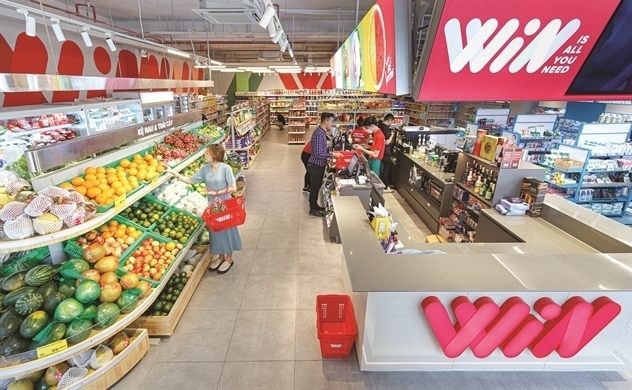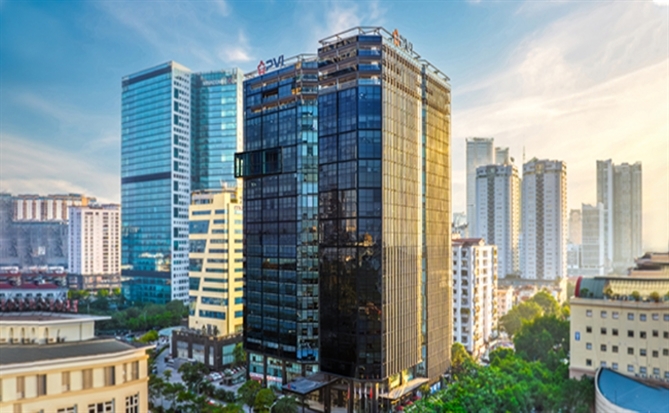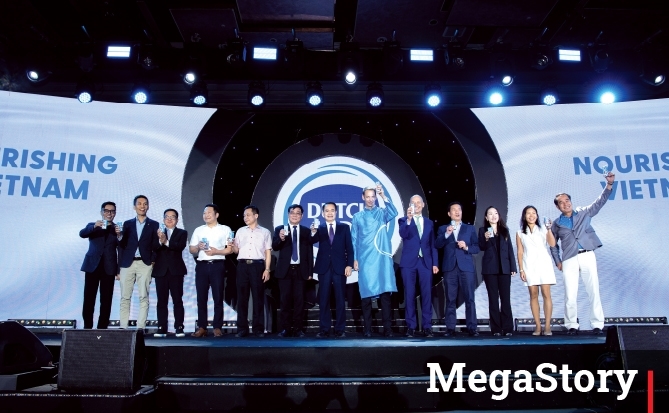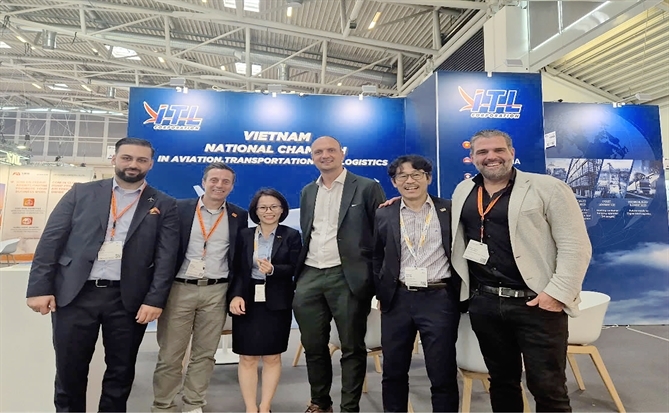The power of retail logistics

The Supra will play an important role in pricing strategy in the context of the current economy, where commodity prices are a sensitive issue with purchasing power.
Leaders of Masan, a Vietnamese private conglomerate, have frequently discussed the role of its subsidiary - The Supra, which is an important unit in charge of logistics in the group. Masan’s logistics arm operates seven dry commodity distribution centers and nine fresh commodity distribution centers for the WinMart system nationwide.
Logistics, a magic tool for cost-cutting
Masan's promotion of The Supra's role is because of the current situation of commodity prices which are sensitive to the purchasing power. Retailers with better prices will retain customers and logistics is a "magic wand" that helps. The Supra has become a key driver in WinCommerce's strategy to expand its grocery store network.
The company owns a 50 percent share in the modern retail market and it is one of two retailers with sales reaching VND 30,000 billion in revenue. It is the only company that successfully maintained its new opening rate in 2022.
The Supra has digitized 90% of operation stages at WinCommerce and Phuc Long chains. “The Supra aims to become the best logistics company in Vietnam, serving the retail system and supporting companies outside the industry,” said Nguyen Thi Phuong, General Director of The Supra, and General Director of WinCommerce.
Masan is not alone. A number of other traditional retailers are also focusing on investing in logistics, seeing it as a growth platform in the near future. They are The Gioi Di Dong or GreenFeed, a company providing animal feed, food, etc. livestock, poultry, and aquatic products, recently encroached on supplying meat to the market. The common investment items of these units are warehouse infrastructure and software to coordinate stakeholders.
In addition to traditional logistics firms, the Vietnamese economy witnesses the appearance of new logistics investment enterprises such as Telio, VinShop, and recently Ninja Mart (belonging to Ninja Van Group).
Ninja Mart aims to connect FMCG brands and traditional retail systems in rural areas. Some typical customers of Ninja Mart in recent years are Ajinomoto, Sabeco, Carlsberg, and recently Carabao Group (Thailand), said Bharrath Palukurhi, Logistics Operations Manager of Ninja Van Group.
Benefit comes with risk
The eagerness of businesses in Vietnam for logistics is in contrast with the capital invested for this sector in Asia – Pacific, which is witnessing a decline in venture capital injected into this field.
According to a recent report by McKinsey, after peaking in the capital mobilization of $25.4 billion in 2021, the capital amount raised in the logistics sector dropped by 50% by the end of 2022, to $12.9 billion. The challenging macroeconomic environment along with the decline in the growth rate of e-commerce are the reasons for the above decrease.
The drawdown was most pronounced in 3 areas: distribution and fulfillment startups focused on warehouse picking, packaging, and delivery coordination (90% off), truck brokers for the market first-mile and middle-mile delivery (70% off), and last-mile digital platform (65% off).
Talking to Investigative Research, an expert in the logistics industry shared that there are 2 reasons why traditional businesses focus on delivery. Firstly, the good price from the supplier is limited, so to optimize the selling price, optimizing operating costs is the next way, logistics can do it.
In addition, the use of external partners can increase costs when the size of the business grows faster than the processing capacity of the partners. As an example, Masan, a representative of this corporation, said that The Supra's handling of 45% of WinComerce's dry goods helped reduce the logistics cost for each product by 13% when standardizing.
Second, equally important, logistics investment helps increase the scalability of businesses. For example, there are services and products A will have potential in area B, but it will be difficult for businesses to find a participating logistics partner in the early stages. Because the partner's operating process may have to change or invest more while the potential of that product/service is not clear.
An example is the case of Mobile World. Mr. Nguyen Duc Tai, Chairman of the Board of Directors of this company, assessed that Vietnam's logistics is still limited and cannot meet the needs of the Bach Hoa Xanh chain.
Save for the future
According to the Vietnam Logistics Association (VLA), logistics costs still account for about 16.8% of the value of Vietnamese goods, while this cost in the world is only about 10.6%. On the side of businesses, high logistics costs also erode profits, especially in industries with thin profit margins like retail.
The advantages of logistics investment are clear, but the associated risks are also identified from the beginning. Basically, warehousing investments are long-term and there is always an unforeseen risk associated with this type of investment. Even long-standing businesses in the industry are still reporting losses, partly showing the complexity of the industry. Typically, ABA Cooltrans and Nhat Tin, two investments of Mekong Capital in logistics in Vietnam reported losses of VND 44 billion and VND 25 billion in 2022, respectively.
But compared to financing to attract customers, the risk in logistics investment is still considered a business's savings. Logistics investment also reflects the move of traditional retailers in the context that cheap capital flows are no longer as abundant as before.
Meanwhile, with new logistics units entering the market like Ninja Mart, the attractiveness of the Vietnamese market is the driving force for them to participate. According to Agility's annual ranking in 2023, Vietnam is among the top 10 emerging logistics markets in the world and fourth in Southeast Asia. Besides, Mr. Nguyen Van Thang, Minister of Transport, said that Vietnam's logistics cost in 2022 is 18% of the GDP. This is down 2% from previous years but still high compared to 11% GDP average. Vietnam is planning to aim for a reduction of around 16% of GDP by 2025.
Mr. Palukurthi of Ninja Group said that in Vietnam, rural areas occupy a large area, but the population is scattered and the transport system is not yet developed, so moving between residential areas takes time. The large investment in logistics leads to many costs and has a direct impact on product prices. Instead of having to invest in building their own network, the cooperation with Ninja Mart will help brands reach 30,000 customers in 29 provinces and cities.

 TIẾNG VIỆT
TIẾNG VIỆT 
















